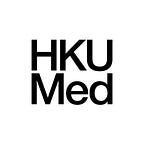A Bond Formed Through Summer Internships — 135 Years of Mentor-Mentee Relationships at HKUMed
Since the establishment of HKUMed 135 years ago, we have adopted various teaching models. But it is sometimes the less formal training that yields the greatest results.
As part of celebrations to mark HKUMed’s 135th anniversary, we have spoken to a series of teachers and students who have formed strong mentor-mentee relationships during their time at the Faculty.
We invited HKUMed’s Assistant Dean in Assessment and Clinical Oncologist, Dr Victor Lee (MBBS 2002), and his former student, Dr William Leung (MBBS 2016), to talk about how their bond was formed. Dr Lee is a Clinical Associate Professor in the Department of Clinical Oncology, School of Clinical Medicine while Dr Leung is now a resident doctor in medicine at Queen Mary Hospital.
During Dr Leung’s first summer holiday as a medical student, he joined Dr Lee’s research team and returned every summer up until his graduation.
Why did you apply for a clinical attachment with Dr Lee?
Dr Leung: During my first year of medical school, I took the Patient Care Project course to learn more about patient-centred care. The group tutor at the time was Dr Lee and he invited us to observe the diagnostic process. He also arranged for us to follow up with newly admitted cancer patients for the clinical study. Back then, I was interested in cancer research and Dr Lee would patiently answer my questions, and I hoped to learn more from him during my summer vacation.
Dr Lee: I have kept his first email! He asked: “Why is it necessary to check if the patient suffers from asthma or allergies before injecting the contrast solution for a CT scan? Why should we prescribe a certain steroid if the patient has asthma?” At the time, our team rarely took year-one medical students for attachments but William was really sincere. So, I arranged for him to shadow me and see patients, and let him experience the daily life of a doctor. I thought, who knows, it might scare him away!
Did you witness any changes in Dr Leung as he returned each summer as an intern?
Dr Lee: Students learn better through real-life demonstrations; it allows them to better grasp the skills of communicating with patients. For example, telling patients and their families bad news is often easier said than done. Such a skill is developed through a doctor’s experience and understanding of patients. It was a humbling experience to witness William improving every year. He became more organised and prepared himself well before asking me any questions. On the contrary, if he hadn’t made progress, it would have been our fault for not teaching him well.
Dr Leung: Each year I gained more knowledge and experience and Dr Lee would arrange tasks based on my ability. So, every summer attachment brought new experiences and learnings. In addition to patient consultation and making ward rounds, I had the opportunity to formulate plans for the scope and intensity of radiotherapy. I was able to experience the work of an oncologist. Although we would touch on many principles and study different cases and even draft scripts to practise conversing with patients, it cannot be compared to the ward. Currently, I am practising medicine and the experience of my past internships has been beneficial.
Could you share with us a research project that you’ve worked on together?
Dr Leung: During the summer before my fifth year of medical school, I joined Dr Lee’s research team on immunotherapy treatment for nasopharyngeal cancer patients. And that’s how I came to publish my first research paper in 2016 in the scientific journal, PLoS One. I helped handle patient data, and although it was just inputting a bunch of numbers, I was poring through medical records for different patients. In particular, many rare and special cases were recruited for the clinical study, which really opened my mind. This experience inspired me to further pursue research.
Dr Lee: Of course, we welcome students who want to help share the research workload but it’s also a valuable learning opportunity. Data entry may be boring, but the process requires clinical judgement to determine whether the data are valid. The project was a prospective study at the time and the findings were cited by other researchers. As an academic, publishing research findings is certainly fulfilling but more importantly, it inspires others in the field to continue their research and explore more avenues of treatment.
What’s the secret to maintaining a mentor-mentee relationship?
Dr Leung: As a mentee, you must take the initiative and have a direction for learning. Whether it is to learn about another department’s work, to accumulate experience for future posts, or to practise patient consultation… even if you have yet to find a direction, you have to be honest with your mentor so they can help you find your way. The second is to reflect; not only with your mentor or mentee, classmates, or colleagues but also to self-reflect.
Dr Lee: Rather than being mentor and mentee, I’m inclined to describe us as partners. This is important for nurturing doctors because the healthcare industry is reliant on teamwork. To converse as friends, without the title mentor and mentee, is the way to learn from each other. Medical knowledge is unlimited. Today, my experience and knowledge may be richer than yours but tomorrow there will be things I’ll consult you on. So, we should learn from each other. I’m also learning from students’ feedback to become a better mentor.
